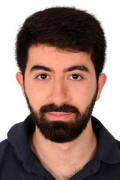|
|
Department of Computer Science, College of Arts & SciencesFundamentals of Computing SystemsCS-350: Spring 2018 |
InstructorsName: Prof. Azer Bestavros Email: best@bu.edu Office: MCS-175, 111 Cummington Mall (ext: 3-9726) Hours: Wed 09:30am-11:00am or by appointment arranged through email Name: Prof. Renato Mancuso Email: rmancuso@bu.edu Office: MCS-201B, 111 Cummington Mall (ext: 8-8537) Hours: Tue 05:00pm-06:30pm or by appointment arranged through email Teaching FellowsName: Qiaobin Fu Email: qiaobinf@bu.edu Office: Undergrad Lab Room 302 at 730 Commonwealth Ave Hours: Mon 03:00-05:00pm Fri 03:00-05:00pm or by appointment arranged through email Name: Nicolas Haddad Email: nhaddad@bu.edu Office: Undergrad Lab Room 302 at 730 Commonwealth Ave Hours: Mon 12:00-02:00pm Fri 01:00-03:00pm or by appointment arranged through email Lectures
Place: CAS-522
Time: Tue/Thu 3:30pm-4:45pm
Sections
A2: Wed 1:25pm-2:15pm(in CAS-204B)
A3: Wed 2:30pm-3:20pm(in CAS-220)
A4: Wed 3:35pm-4:25pm(in CAS-B25B)
A5: Wed 4:40pm-5:30pm(in MCS-B23)
A6: Wed 5:45pm-6:35pm(in MCS-B23
Important Dates
Last day to drop the class without a W grade is Thu 2/22
Last day to drop the class with a W grade is Fri 3/30
Midterm Exam dates are Tue 3/13 and Thu 4/19
Final Exam date is Thu 5/10 (tentative)
Cyberspace Coordinates
URL: http://www.cs.bu.edu/~best/courses/cs350/S18
Bboard: http://learn.bu.edu/
Piazza: http://piazza.com/bu/spring2018/cs350
Facebook: http://www.facebook.com/groups/bucs350
|
Schedule of Lectures and AssignmentsChanges to the schedule will be announced in class if need be
Notes:
Important Dates:
|
OverviewThis course is a required sophomore/junior-level Computer Science course. It covers the fundamental concepts underlying the design and implementation of computing systems. The philosophy underlying the design of this course is that students should be familiarized with problems that reoccur in software systems, and should be acquainted with the set of classical algorithms/techniques for solving such problems. In particular, it is important to develop the ability to recognize standard problems in different wordings and within unusual context, and match them with appropriate solutions. Catalog Description: Rigorous treatment of invariant concepts, algorithms, and performance evaluation methods underlying computing systems design. Topics include modeling and analysis of concurrent processing, computational resource scheduling and consumption, and performance evaluation techniques. Prerequisite Courses:
Recommended Follow-up Courses: The following courses build on knowledge assimilated in CS-350. They are natural follow-up courses in decreasing order of relevance (more or less).
CS-451: Distributed Systems and Cloud Computing Function in the Curriculum: As a core undergraduate course, CS-350 does not focus on particular implementations or specific technologies. On the contrary, it stresses the fundamental concepts and basic algorithms that have survived (and are likely to survive) the evolution of computer software systems in general, and operating systems in particular. This course is significantly different in purpose and coverage from CS-210 (Computer Systems) and CS-410 (Software Systems). CS-210 and CS-410 introduce computer systems to sophomores using a hands-on approach by examining the "mechanics" and/or the "plumbing" of modern (or typical) computer operation through exposure to various interfaces between architecture, compilers, loaders, linkers, and run-time systems. CS-350 does not focus on a particular interface or a particular technology, rather it deals with fundamental notions and algorithms that are common to computing systems in general and to software systems in particular. This course is required or strongly recommended for the following advanced courses: CS-552 (Advanced Operating Systems), CS-550 (Advanced Computer Architecture), CS-551 (Parallel Computing Architectures and Models), CS-455/655 (Data Communications), CS-460/660 (Databases), and CS-470/670 (Performance Analysis). In that respect, this course covers basic notions that we expect students (graduates and undergraduates alike) enrolling into these classes to have mastered. For example, it is inconceivable that a student who is interested in taking a database or an operating systems class, not to have been exposed to the notion of concurrent processing and mutual exclusion. Similarly, it is unconceivable for a student enrolled in a networking, database, or operating systems class, not to have been exposed to performance analysis using simple queuing systems, for example. Topical contents: The topics covered in this class could be grouped under 4 general themes:
The first half of the semester will be devoted to the coverage of the first two of the above themes, whereas the second half of the semester will be devoted to the coverage of the other two themes. |


 Renato
Mancuso
Renato
Mancuso
 Nicolas
Al Haddad is a first-year PhD Student in the Department of Computer
Science at Boston University. He Completed his BS in computer Science
from the American University Of Beirut. He is working with Prof Azer
Bestavros, Prof. Mayank Varia and Prof Haibin Zhang. His research
interests span through an array of topics including but not limited to:
Distributed Systems, Multi Party Computation, and Formal methods.
Nicolas
Al Haddad is a first-year PhD Student in the Department of Computer
Science at Boston University. He Completed his BS in computer Science
from the American University Of Beirut. He is working with Prof Azer
Bestavros, Prof. Mayank Varia and Prof Haibin Zhang. His research
interests span through an array of topics including but not limited to:
Distributed Systems, Multi Party Computation, and Formal methods.